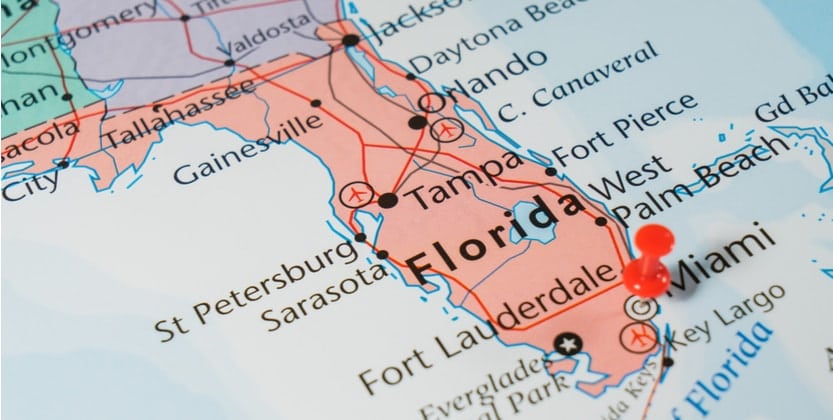Being involved in a car accident outside of your state of residence can be scary. Not only are you handling the mental and physical trauma of the accident itself, but you're in foreign territory. A dozen questions probably will run through your head at once, but the first will most likely be, "Am I still covered when I'm not at home?" Let's dive into that question.

Where Does My Policy Cover?
Before you panic that your auto insurance doesn't apply in other states, rest assured: no matter how far away from home you are, you are still most likely covered by your current auto insurance policy. Most auto insurance policies cover all 50 states as well other U.S. territories, such as Puerto Rico. In fact, some policies even cover Canadian provinces.
Before you embark on a trip that will take you and your vehicle across state lines, you can always consult with a qualified attorney to understand exactly what your policy covers. Be wary of driving south of the border to Mexico or within other South American countries, as those may not be covered by your insurance.
What Will My Policy Cover?
Even though an out of state accident will seem like a once in a lifetime experience to you, these types of car crashes happen constantly. For this reason, car insurance companies made the protocol for these cases as easy as possible. If you are in an accident out of state, your coverage limits will adjust to meet whatever is required in the state where the crash occurred.
For instance, if your home state is Florida, your policy requires minimum liability limits of 10/20/10 for property damage and personal injury protection (PIP). If you have an an accident while driving in Georgia, their state requires minimum liability limits of 25/50/25 for bodily injury and property damage liability. If you're in an accident in Georgia, your policy limits for liability will automatically increase to meet the Georgia minimum.
If you're driving in a state that requires lower liability limits than your home state, for instance if you're a Georgia resident getting into an accident in Florida, your insurance policy will not decrease to meet that state minimum. Rather, it will provide the maximum coverage on your policy even if it is more than what the state you're visiting requires.
What If the State Isn't "No-Fault"?
Florida is one of 12 no-fault states, meaning that a driver's personal injury protection (PIP) will pay for their injuries regardless of which driver was at fault. Because of this, Florida drivers are required to carry a minimum of $10,000 in PIP coverage. Getting into an accident in another no-fault state will mean that your PIP coverage will still pay for your injuries the same way it would in your home state.
If you're in an accident in a state that does not use a no-fault system, known as a tort state, the negligent driver will be held responsible for your injuries instead of your PIP coverage. Continuing with the above example, if you are hit by a negligent driver while travelling through Georgia, which is a “fault” state, the negligent driver would be held responsible for your injury and damages. Georgia law would govern how the accident was resolved, and the at-fault driver's insurance policy would determine how medical benefits and lost wages are paid.
On the flip side, if a Georgia driver was hit by a Florida driver in the no-fault state of Florida, the Georgia resident's insurance policy would still provide them with the minimum PIP coverage required in Florida. While scenarios do vary from case to case, it is a general rule of thumb that the state in which the accident occurred will have governing law in terms of minimum liability coverage, fault, and even statue of limitations.
How Should I Handle an Out of State Accident?
Despite which state you're in, you should always follow the standard auto accident checklist.
- Check for injuries and the safety of your passengers.
- Call the police and emergency services.
- Assess and document the damage, taking pictures if possible.
- Exchange information with the other party.
- Call your insurance company.
- Contact an experienced auto accident attorney.
When you speak with your insurance company, alert them that you are in a different state. Depending on your insurance policy, your insurance may cover additional expenses such a tow truck, if necessary. Your insurance can also help find you the nearest repair shop, and help answer any questions you may have regarding your policy.
Next, contact a trusted personal injury attorney who specializes in auto accidents. Auto accidents in general can be confusing, but once you're out of familiar territory you want to know that you have an expert on your side. Always discuss your case with an attorney first to ensure that you have the best possible chances of compensation.
Out of state accidents can be frightening. You don't have to feel like you're alone. If you've suffered injuries because of a negligent driver, contact Weinstein Legal, a Fort Lauderdale personal injury lawyer today to discuss the details of your case.


